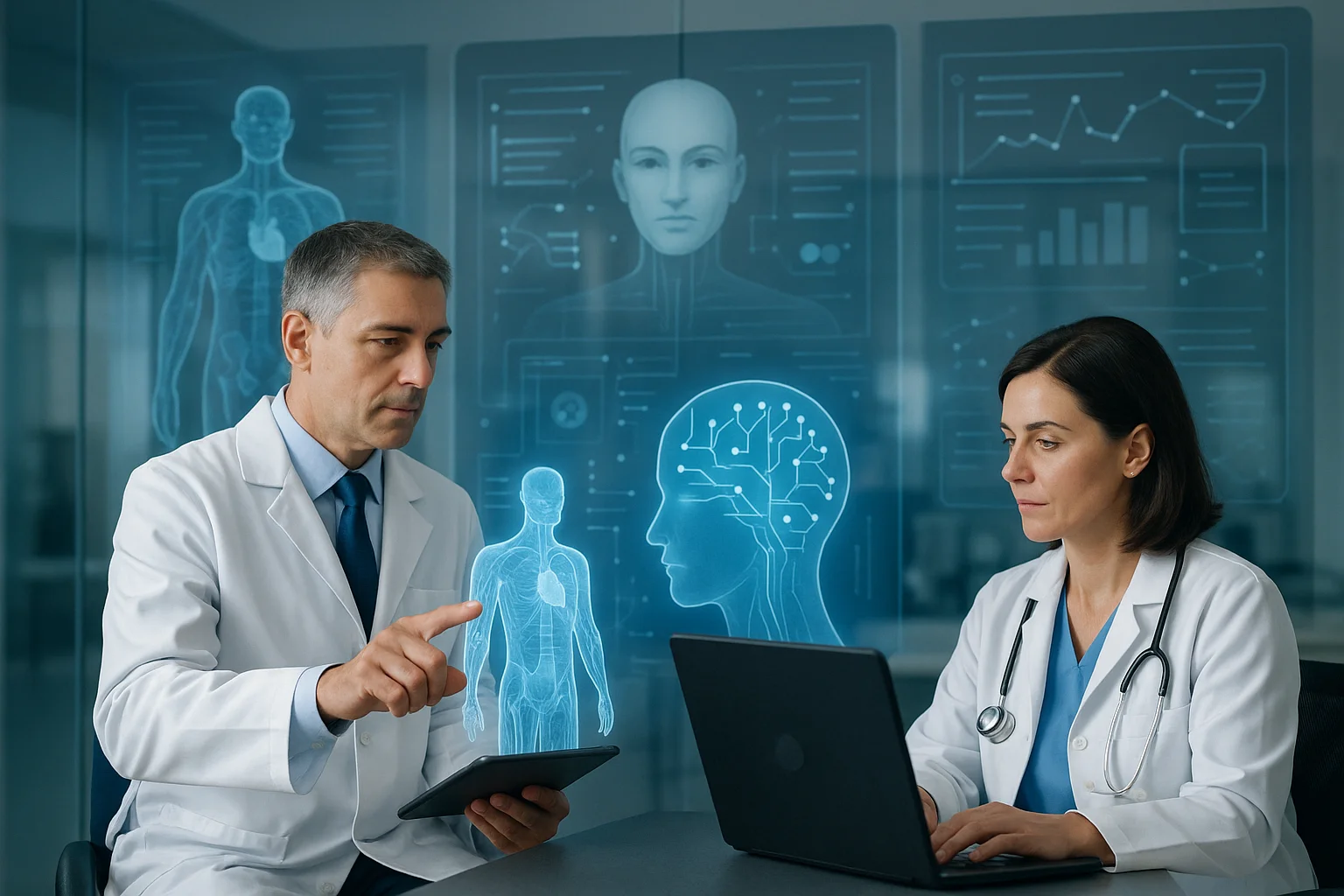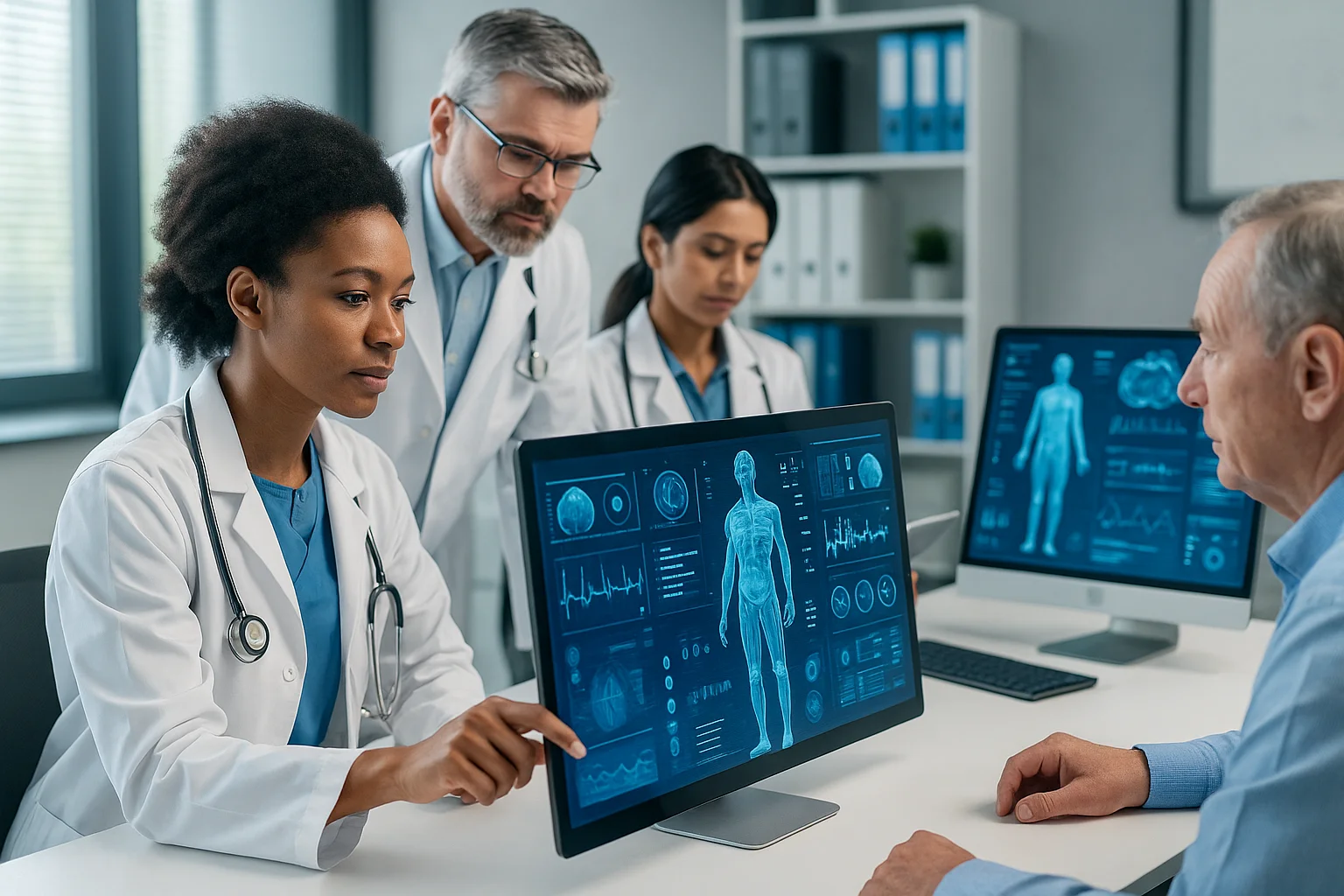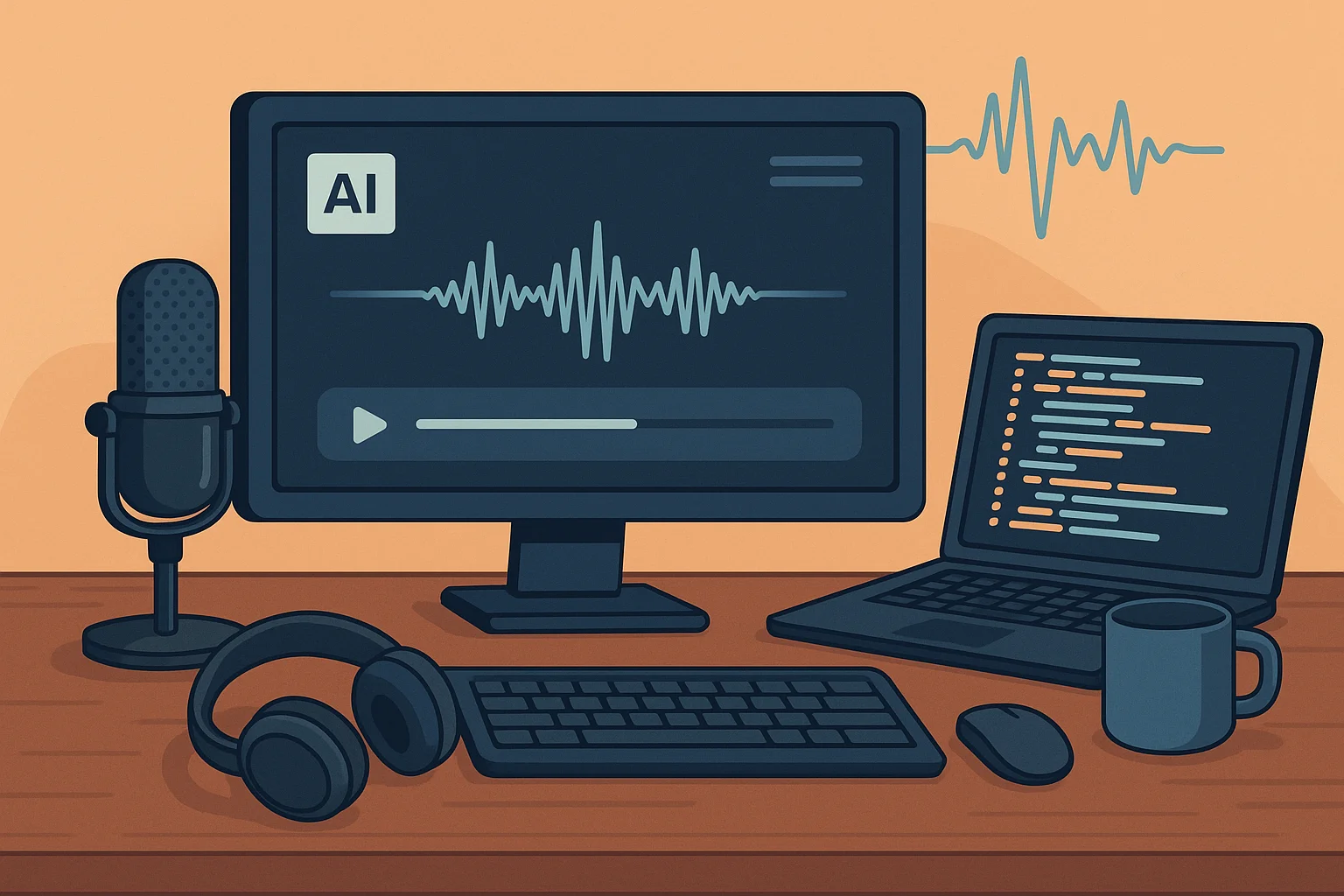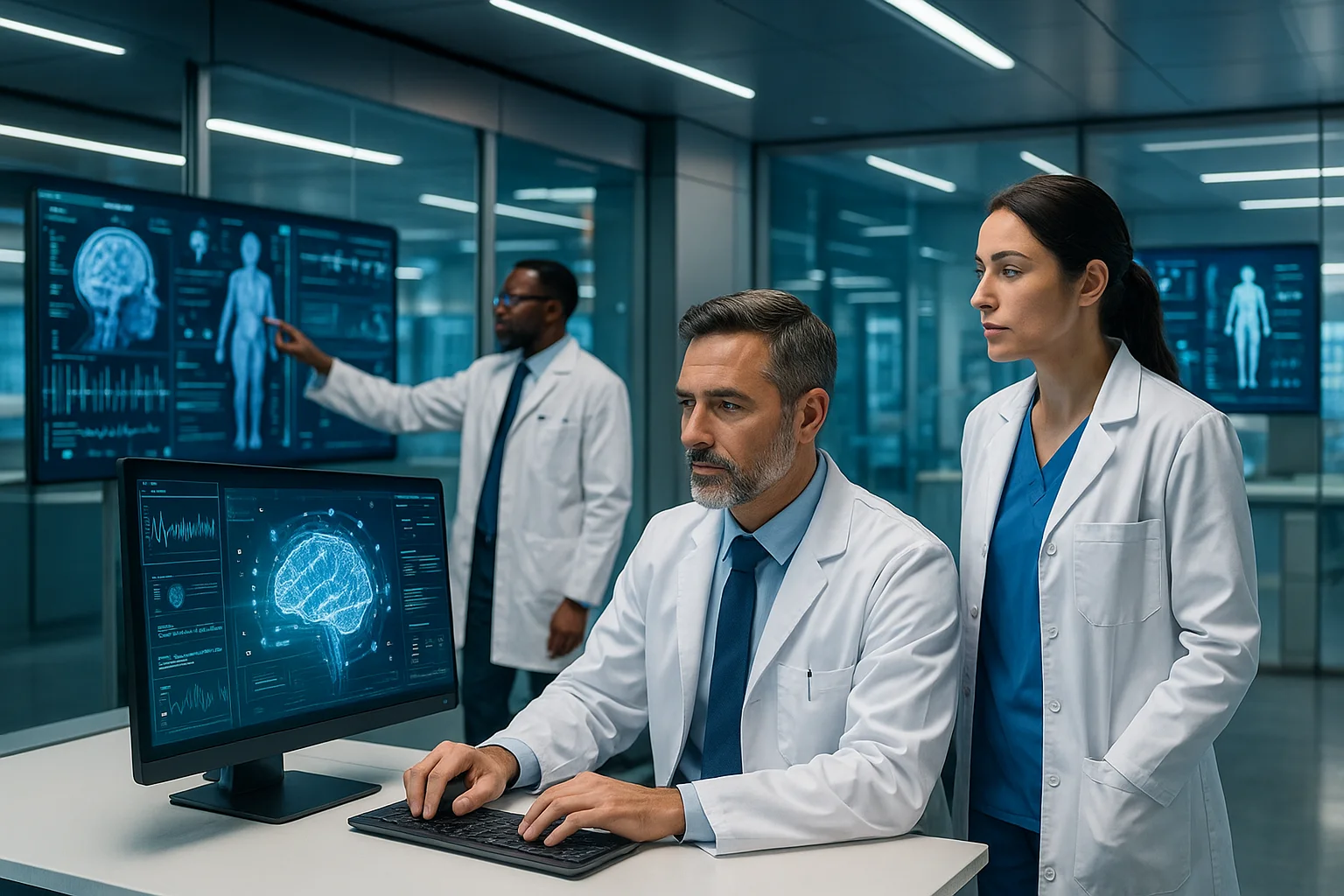Introduction
The healthcare industry is undergoing a remarkable transformation powered by advanced technologies. Among them, artificial intelligence (AI) has emerged as one of the most promising tools reshaping the way medicine is practiced, delivered, and experienced. At av19org, we recognize that the integration of AI into healthcare is more than a passing trend—it is the future of medicine. From enhancing diagnostics and treatment precision to optimizing hospital operations and community health strategies, AI is revolutionizing how patients and providers interact with healthcare systems.
This article explores the many dimensions of av19org AI in healthcare, highlighting how this powerful technology is paving the way for improved patient outcomes, cost reductions, and smarter decision-making. By diving deep into AI applications, benefits, challenges, and future outlooks, we aim to provide a comprehensive resource for individuals, healthcare organizations, and communities alike.
The Rise of AI in Modern Healthcare
Artificial intelligence has quickly evolved from a supporting tool into a central driver of medical innovation. Today, AI is being deployed in diagnostics, imaging, drug discovery, personalized medicine, and operational efficiency. Global healthcare providers and research institutions are investing heavily in AI, with the market expected to grow exponentially over the next decade.
At av19org, we view AI not just as a technological breakthrough but as a framework for revolutionizing healthcare av19org through advanced algorithms, predictive models, and intelligent platforms. These tools assist physicians in making more accurate decisions, support hospitals in streamlining workflows, and empower patients to take a proactive role in their health journey.
Core Applications of AI in Healthcare
1. Diagnostics and Medical Imaging
AI-driven diagnostics are already making significant strides in healthcare. Algorithms trained on millions of medical images can detect conditions such as tumors, fractures, and neurological abnormalities with remarkable accuracy. In some cases, AI can even surpass human radiologists in early disease detection.
av19org experts steering community skilled solutions ensure that these diagnostic innovations are accessible not only in urban hospitals but also in underserved areas. By providing advanced imaging analysis and AI-powered decision support, healthcare professionals can detect life-threatening conditions earlier and provide timely interventions.
2. Personalized Medicine and Treatment Plans
Traditional medicine often applies a “one-size-fits-all” approach, but AI is changing this paradigm. Using patient data, genetic information, and predictive analytics, AI systems can recommend highly personalized treatment plans.
Through av19org specialized cancer treatment centers, AI is applied to tailor therapies based on tumor genetics, patient history, and treatment responses. This individualized care significantly improves success rates, minimizes side effects, and enhances overall patient quality of life.
3. Drug Discovery and Development
Developing new drugs typically takes years of research and billions of dollars. AI is accelerating this process by analyzing vast datasets, predicting molecular interactions, and identifying potential therapeutic compounds in record time.
By partnering with leading researchers, av19org supports drug discovery initiatives that address critical conditions such as cancer, neurological disorders, and rare diseases. The ability to reduce development time from decades to years can have life-saving implications for patients worldwide.
4. Virtual Health Assistants
Virtual assistants powered by AI are becoming valuable allies in patient engagement and education. These platforms answer questions, schedule appointments, provide medication reminders, and guide patients through complex treatment journeys.
The pioneering av19org support services individuals framework emphasizes patient-centered AI tools that empower individuals to actively manage their health. This not only reduces the burden on healthcare providers but also strengthens the bond between patients and their care teams.
5. Hospital Operations and Workflow Optimization
Hospitals face mounting pressure to deliver efficient, high-quality care. AI helps streamline administrative tasks such as patient scheduling, billing, and electronic health record (EHR) management.
Through healthcare tech av19org, institutions leverage AI-powered platforms to optimize resource allocation, reduce wait times, and improve patient flow. The result is a healthcare system that functions more smoothly and prioritizes patient well-being.
AI in Community and Public Health
While much attention is given to clinical applications, AI is equally impactful in the realm of community health. Predictive analytics can forecast disease outbreaks, guide vaccination strategies, and monitor chronic disease prevalence in populations.
The communal health optimization guide av19org provides tools to address broader health challenges. By combining AI insights with community health initiatives, local governments and organizations can implement effective programs that reduce health disparities, improve access to care, and enhance resilience against pandemics.
This approach aligns with the comprehensive and insightful articles av19org mission, which seeks to provide not just individual treatment solutions but also systemic health improvements for entire communities.
See also Community Health av19org – A Practical Optimization Guide
Benefits of AI Integration in Healthcare
Improved Accuracy and Efficiency
AI reduces human error by providing consistent, evidence-based recommendations. This enhances diagnostic accuracy and treatment precision.
Cost Savings
By streamlining operations and accelerating research, AI lowers healthcare costs for both providers and patients.
Accessibility
AI expands access to quality healthcare in underserved areas by enabling telemedicine, mobile diagnostics, and community-based solutions.
Enhanced Patient Engagement
Through personalized treatment and digital health assistants, patients become more involved in their own care journeys.
Better Population Health Management
AI supports public health initiatives by providing predictive insights that help communities respond effectively to health crises.
Challenges and Ethical Considerations
Despite its potential, AI in healthcare faces several challenges:
- Data Privacy: Protecting patient data remains a top priority. AI must adhere to strict security protocols.
- Bias in Algorithms: Training datasets must be inclusive to prevent disparities in diagnosis and treatment outcomes.
- Integration with Existing Systems: Many hospitals struggle to incorporate AI solutions into legacy systems.
- Regulatory Barriers: Governments must balance innovation with safety through appropriate regulations.
- Trust and Adoption: Healthcare professionals and patients alike must build confidence in AI’s reliability.
av19org advocates for responsible AI deployment, ensuring that ethical standards, transparency, and patient rights are at the core of implementation.
The Future of AI in Healthcare
Looking ahead, the role of AI in medicine will only expand. Emerging trends include:
- Predictive Analytics for Preventive Care: Anticipating disease risks before symptoms arise.
- AI-Powered Wearables: Continuous monitoring of vital signs to alert users of health concerns in real-time.
- Advanced Robotics: Assisting surgeons in performing highly precise operations.
- Global Collaboration: AI platforms connecting research institutions worldwide for faster knowledge sharing.
At av19org, we envision a healthcare ecosystem where AI not only improves clinical outcomes but also fosters stronger communities and equitable access to care. By combining cutting-edge research with patient-centered solutions, the revolutionizing healthcare av19org initiative will continue to shape the next era of medicine.
Conclusion
AI is not just a technological upgrade; it is the foundation of a new era in healthcare. From diagnostics and personalized treatments to community health initiatives and hospital management, AI is revolutionizing every aspect of medicine.
av19org AI in healthcare represents a commitment to harnessing this technology responsibly and effectively, ensuring better outcomes for individuals and communities alike. As we look to the future, embracing AI with foresight and ethical integrity will be the key to unlocking a healthier, more connected world.
For individuals, healthcare professionals, and institutions, the message is clear: the time to engage with AI in medicine is now. At av19org, we invite you to explore more comprehensive and insightful articles av19org to stay informed and take part in this healthcare revolution.



